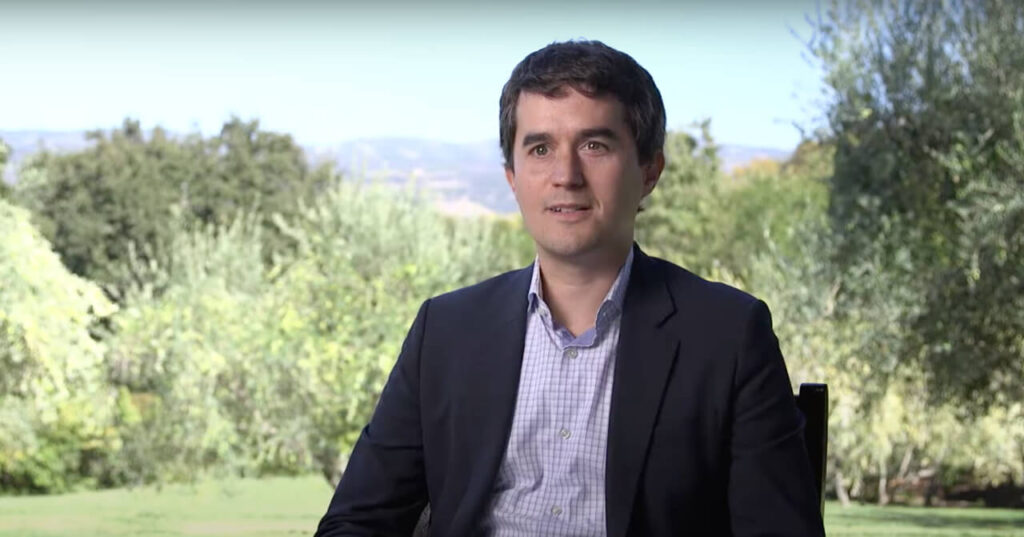Dr. Conor Liston: Neurobiologically Distinguishing Depression Subtypes

Each individual who lives with depression lives a unique struggle. Causes and symptoms of the diagnosis differ from case to case, making it impossible to treat and to study effectively using a “one size fits all” approach. Although a more refined set of diagnoses accurately distinguishing depression subtypes would be a huge boon to patients, as of 2015 scientists still had only a rudimentary understanding of the neurobiological bases underlying such prospective subtypes.
Casting brilliant light on the topic in a paper published in the prestigious journal Nature Medicine in January 2017 is Conor Liston, MD, PhD, Assistant Professor of Neuroscience and Psychiatry at the Brain and Mind Research Institute and Department of Psychiatry, Weill Cornell Medical College. With funding from his 2015 One Mind / Janssen Rising Star Translational Research Award, Dr. Liston and his team have begun to tease apart the neurobiological differences between different types of depressive disorders.
In their 2017 paper, Liston’s team identified four discrete depression subtypes by looking for patterns in brain biology (biomarkers). Collaborating with investigators at multiple institutions, Dr. Liston has compiled an unprecedentedly large dataset of resting state fMRI scans for over 1,000 depressed patients and matched controls. Dr. Liston’s lab has analyzed these scans to identify distinct patterns of abnormal brain connectivity that define each of four clear, never-before-distinguished subtypes. As Liston says, “These subtypes cannot be diagnosed based solely on clinical symptoms, but they are associated with contrasting clinical profiles feature subtype-specific differences in anhedonia, anxiety, insomnia, fatigue, and psychomotor slowing. Importantly, they also predict individual response rates to transcranial magnetic stimulation of the dorsomedial prefrontal cortex, a neurostimulation-based antidepressant therapy.”
If Liston’s success continues this trajectory, not only might doctors soon be able to use neuroimaging to diagnose different forms of depression much more specifically than ever before, they may also soon be able to prescribe just the right treatment strategy for each patient, without the weeks of trial and error that often accompanies finding helpful treatments now-potentially saving countless lives.
Coming soon, Liston’s team plans to extend their discoveries into even more useful results for patients through three research aims:
- Learn more from these biomarkers for classifying depression, by studying a prospective 75-patient cohort with brain imaging, to evaluate how specific connectivity patterns generate specific depression symptoms and behaviors.
- Model the deficits of the stress-related subtype in the brains of mice, to test whether these can cause the mice to display deficits in cognitive control, reward processing, and depression-related behaviors, as observed in humans with this subtype.
- Test whether two different strategies-ketamine treatment, and optogenetically enhancing the calming effects of interneuron activity-can work to improve prefrontal cortex dysfunction and combat depression-like behaviors in chronically stressed mice. Very interestingly, the team has already discovered a key mechanism for ketamine’s antidepressant effect: brain plasticity enhancement. By accelerating the restoration of synapses lost in the prefrontal cortex to depression, ketamine is able to rapidly rescue depressive behaviors. By isolating this ketamine mechanism, Liston’s team has lit the way for researchers to develop even better rapid antidepressants.
These discoveries have helped Dr. Liston earn several major awards from the U.S. government and other sources to expand his research to help more people. We at One Mind thank Dr. Liston for his commitment to brain health, and thank our donors for enabling us to fund his constructive work.
Your donation helps One Mind launch promising early-career investigators and their innovative research through the Rising Star Awards. Make a donation today that will accelerate ground-breaking discoveries in brain illness.
